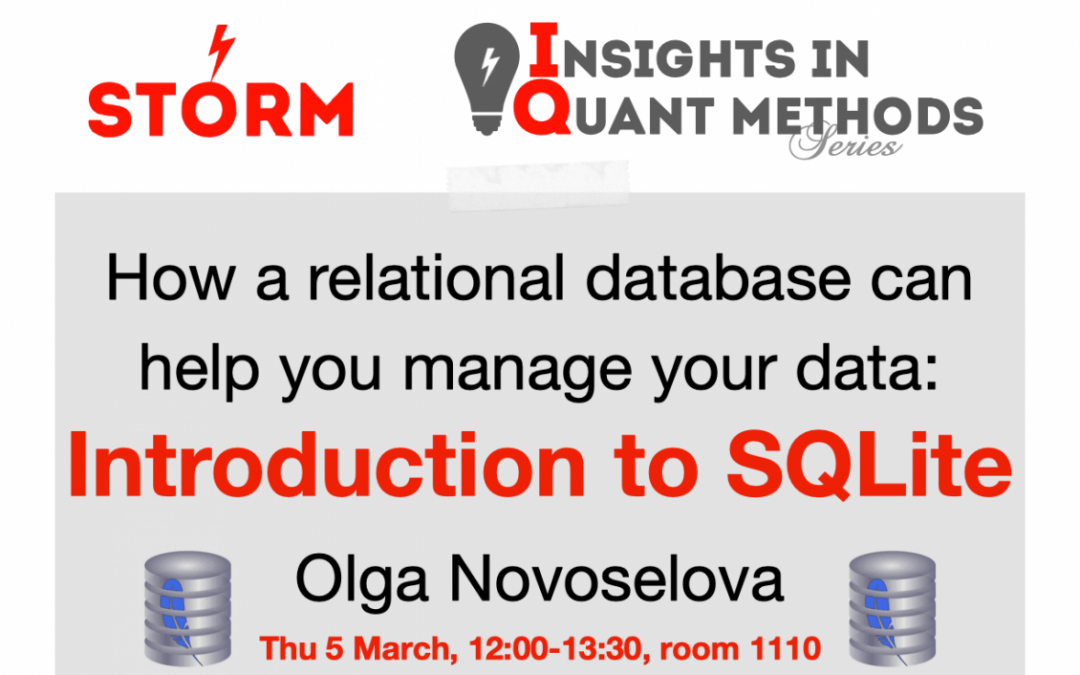Scholars often store data in datasets of the same shape that they use for running analyses. This is not the best practice for dealing with data. Using a relational database for data storage and management simplifies cleaning, matching, and reusing the data, reduces errors, and saves space. SQLite is a relational database management system for local data storage. It is free, simple, efficient, and reliable. SQLite has bindings to many programming languages, including R and Python.
This workshop is truly introductory and may interest scholars who use quantitative analyses and have no or very little knowledge of relational databases (but if you use them, you are welcome to attend and share your experience). I will briefly explain what a relational database is and how it helps with storing and managing data for research projects. Then, I will show how SQLite works and provide some code examples for building and using a database.
No knowledge of any particular software or programming languages is necessary, and there is no need to have your laptop at the workshop. I will send the shown links and code examples to the workshop participants afterwards.
Should you want to attend this talk, please register at: https://docs.google.com/forms/d/1iBcqG5ne5mUGxqg7HgEKbRNjmTXEnyenDyPb1ExWkiE by noon of Tuesday, March 3rd. We will order a free sandwich for you (please mention any dietary preference).


